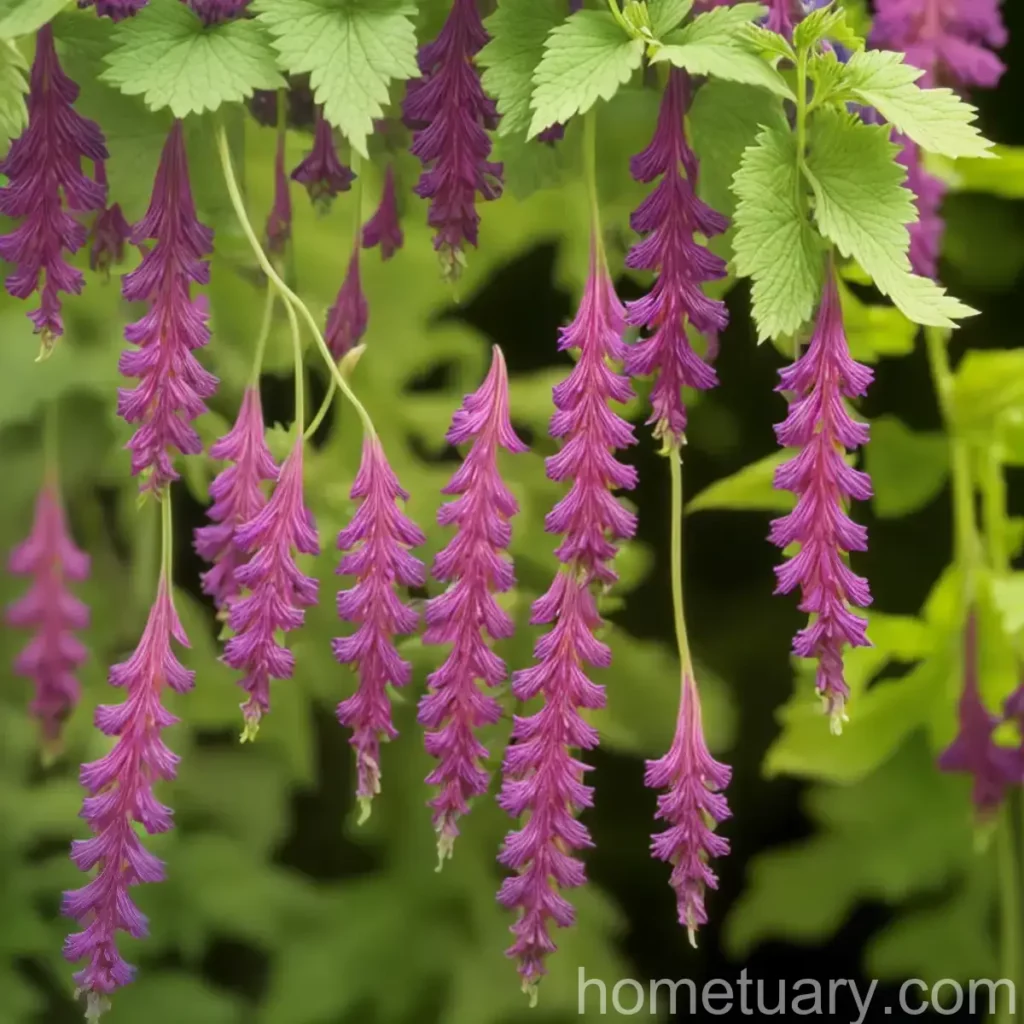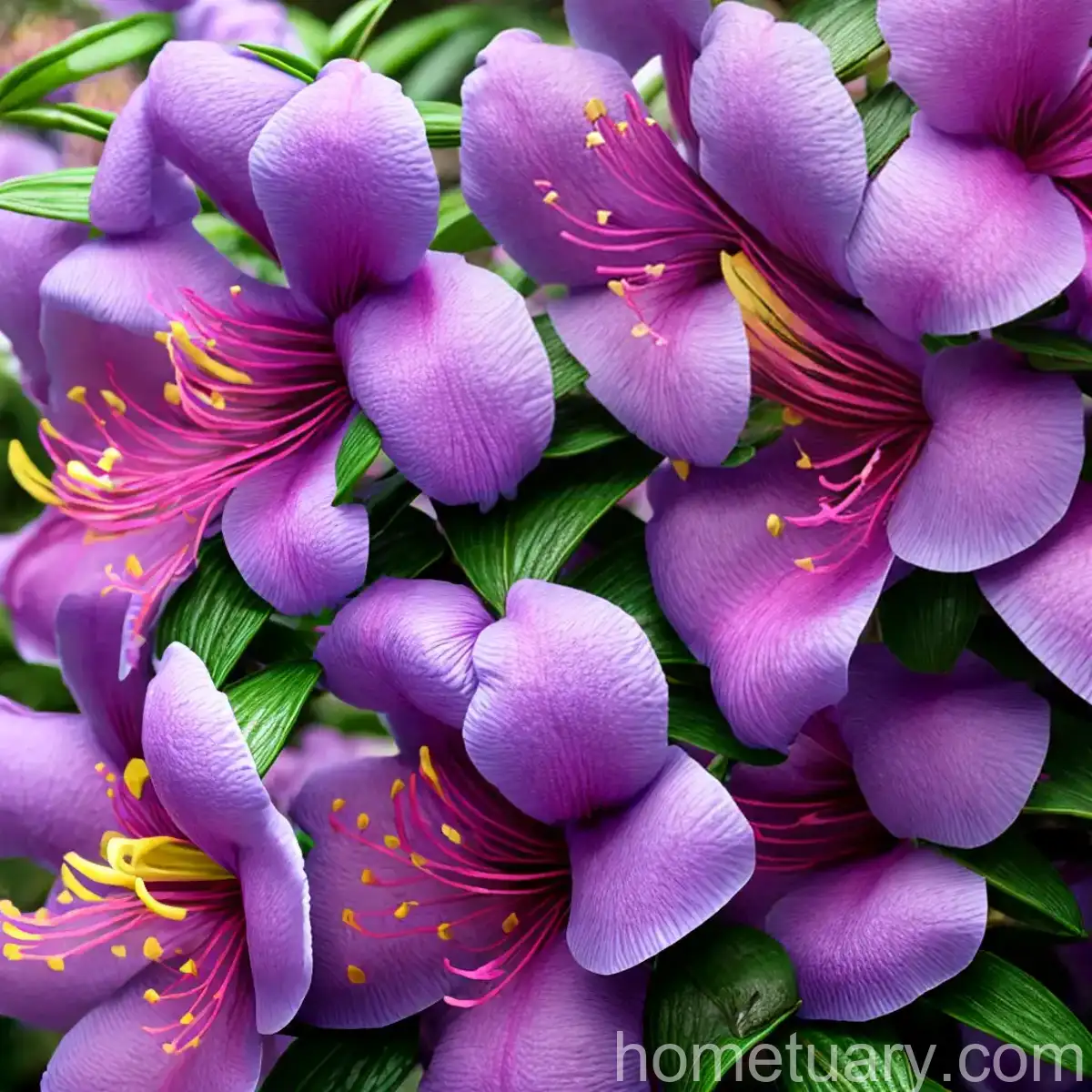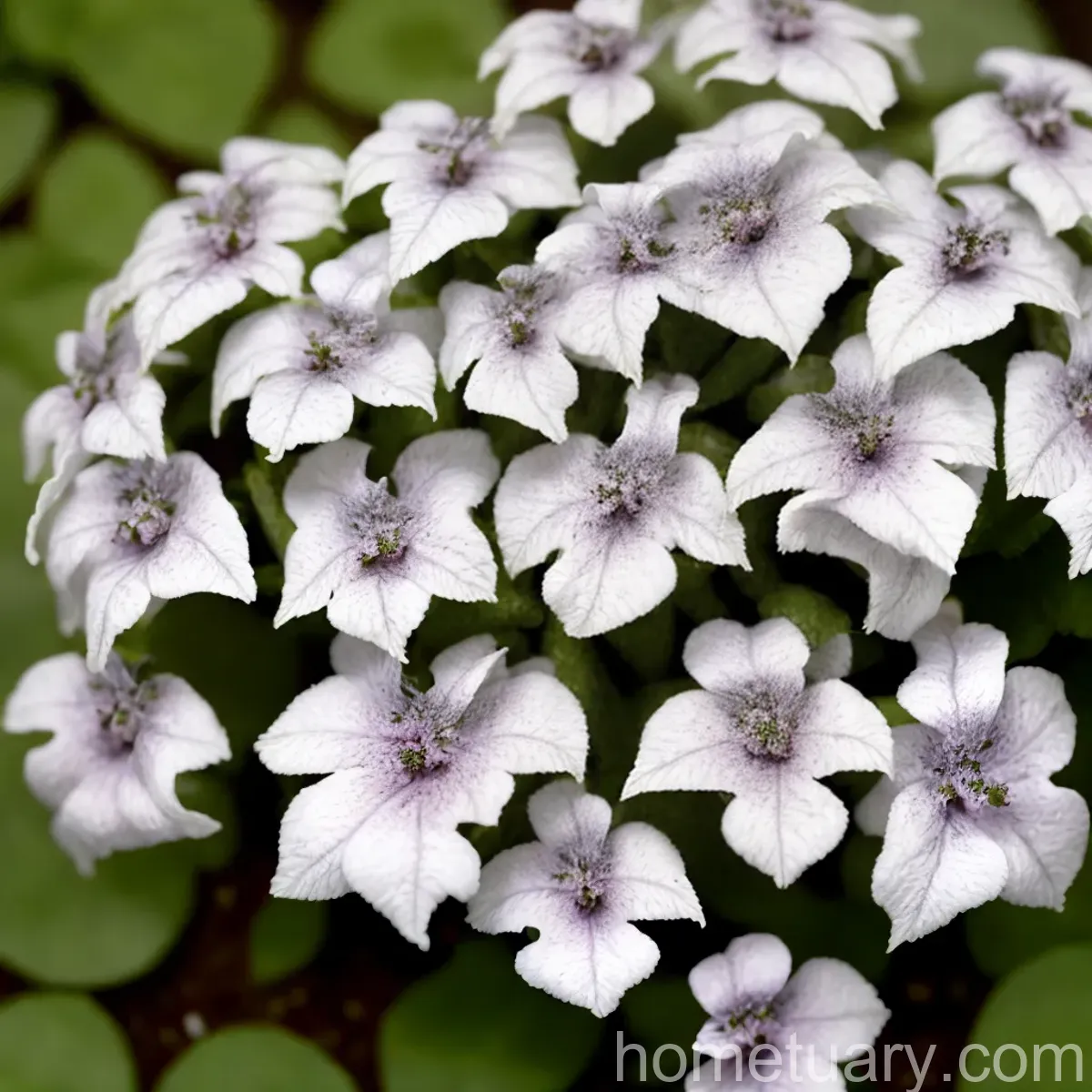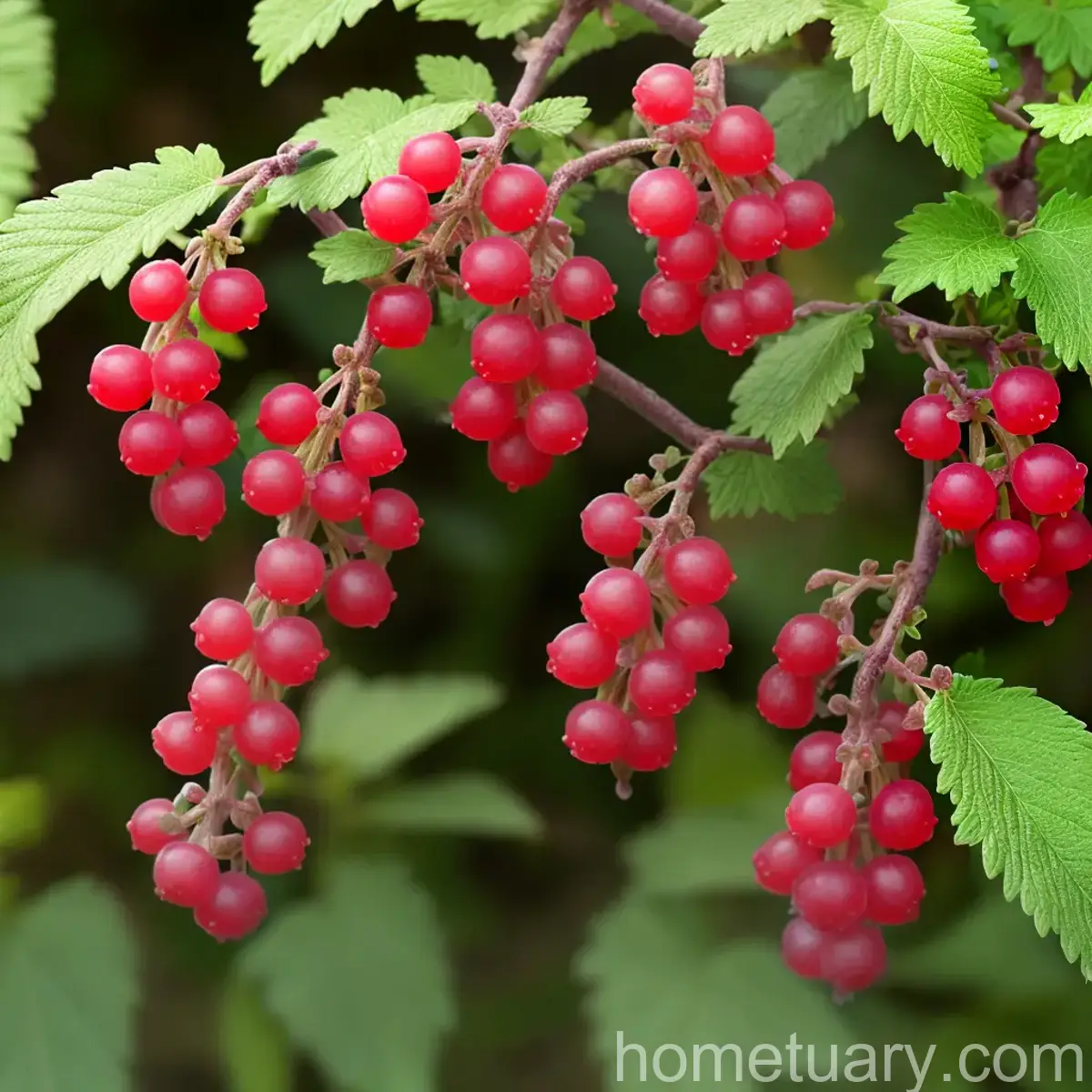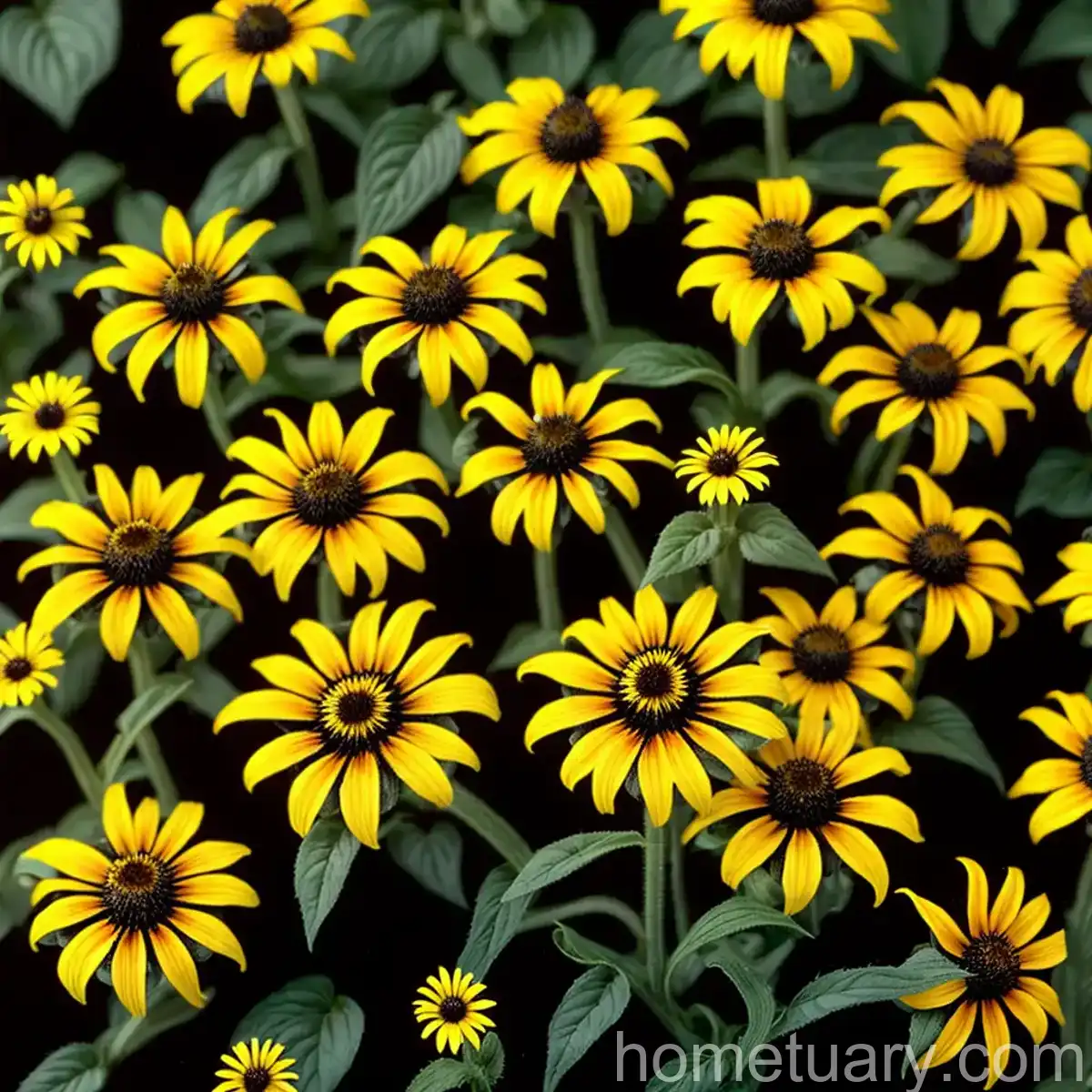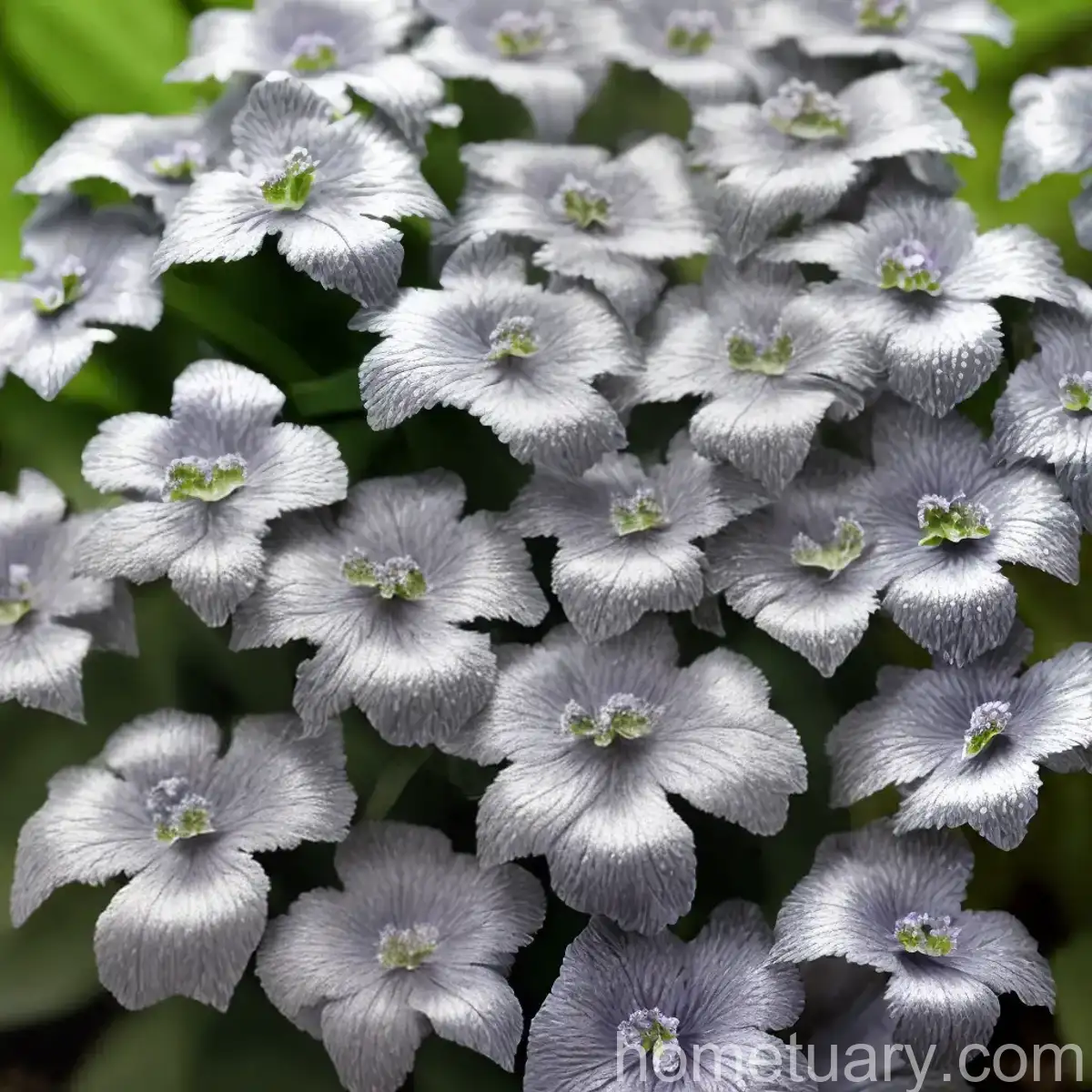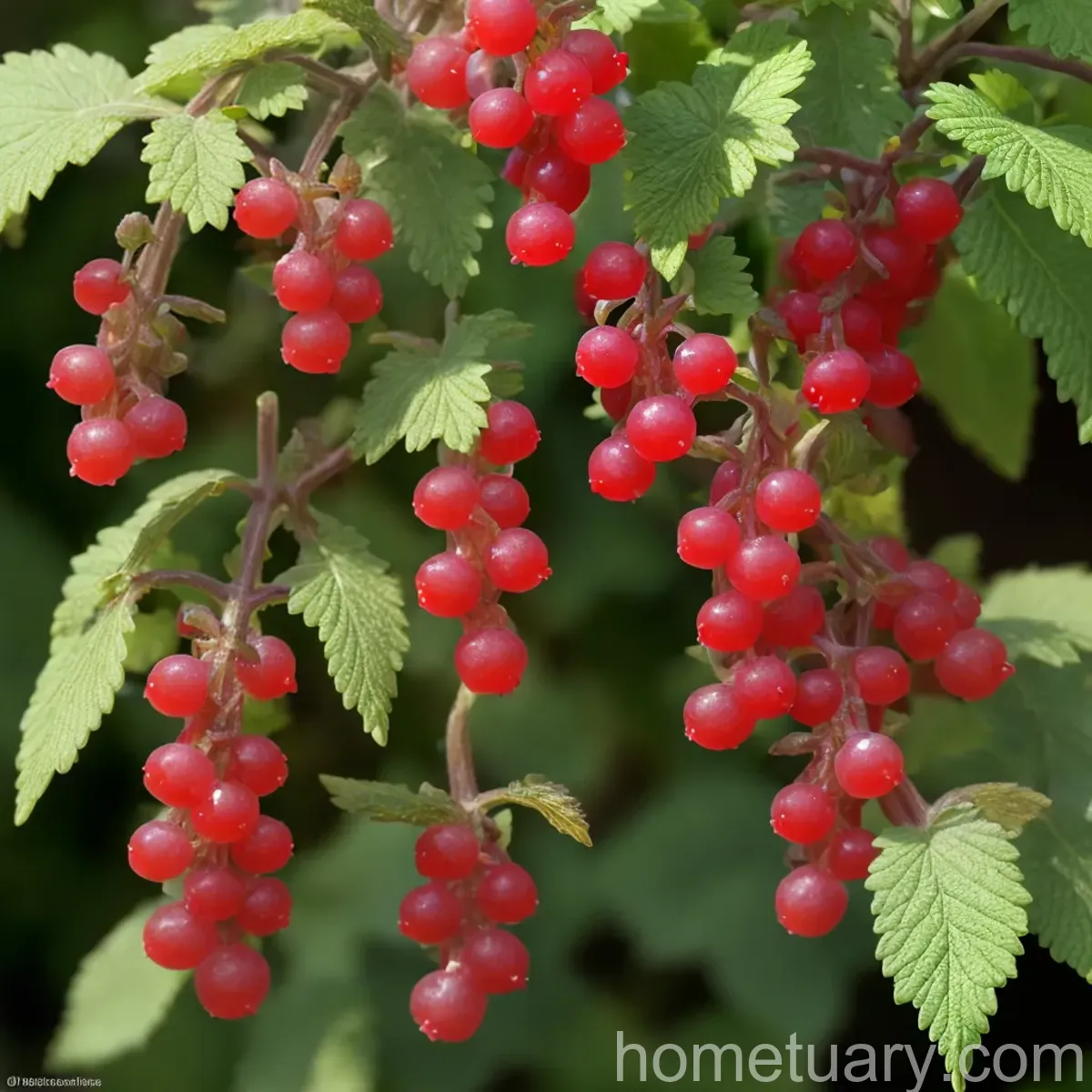The Charming Corydalis ‘Blackberry Wine’: A Complete Guide
What is Plant Corydalis (Corydalis ‘Blackberry Wine’)
Corydalis ‘Blackberry Wine’ is a stunning perennial plant that belongs to the Fumariaceae family. This cultivar is a hybrid of different Corydalis species and is prized for its unique and attractive foliage, as well as its exquisite flowers. The plant is known for its delicate yet vibrant blooms in shades of reddish-purple, which add a touch of elegance to any garden or landscape.
Key takeaways – Corydalis (Corydalis ‘Blackberry Wine’)
- Plant Name: Corydalis ‘Blackberry Wine’
- Family: Fumariaceae
- Type: Perennial
- Flower Color: Reddish-purple
- Foliage: Lacy, blue-green foliage
- Growth Habit: Clump-forming
In this comprehensive guide, we will delve into the various aspects of caring for Corydalis ‘Blackberry Wine’, including its culture, uses, water, sunlight, fertilizer, soil, pruning, propagation, container gardening, popularity, common diseases, disease diagnosis, common pests, and botanist’s tips. Additionally, we will explore some fun facts about this enchanting plant and provide links to external resources for further information.
Culture
Corydalis ‘Blackberry Wine’ is a relatively low-maintenance plant, making it an excellent choice for gardeners of all levels of experience. Understanding its cultural preferences is crucial for ensuring its optimal growth and performance in the garden.
Uses
- Garden Beds: Corydalis ‘Blackberry Wine’ adds a pop of color and texture to garden beds, particularly when planted in groups or clusters.
- Borders: It can be used to delineate borders and edges due to its tidy growth habit and eye-catching flowers.
- Rock Gardens: The dainty and elegant appearance of this plant makes it a perfect addition to rock gardens, where it can thrive in well-drained soil and partial shade.
- Containers: It can also be cultivated in containers, allowing individuals with limited gardening space to enjoy its beauty on patios, balconies, or even indoors.
Water
Requirements
Corydalis ‘Blackberry Wine’ thrives in moist, well-draining soil. It is essential to strike a balance with watering, ensuring that the soil remains consistently moist without becoming waterlogged. During periods of prolonged drought, supplemental watering may be necessary to sustain its growth.
Sunlight
Ideal Conditions
In terms of sunlight requirements, Corydalis ‘Blackberry Wine’ prefers partial to full shade. It is well-suited for locations with dappled sunlight or areas that receive morning sun and afternoon shade. However, it is crucial to protect the plant from harsh midday sun, particularly in regions with hot summers, as excessive heat and direct sunlight may cause stress and impact its overall vigor.
Fertilizer
Feeding
When it comes to fertilization, Corydalis ‘Blackberry Wine’ benefits from a light application of a balanced, all-purpose fertilizer in early spring as new growth emerges. It is essential to follow the manufacturer’s recommendations regarding the application rate and frequency to prevent overfeeding, which may lead to excessive foliage growth at the expense of flowering.
Soil
Preferences
This plant thrives in rich, well-draining soil with a slightly acidic to neutral pH. Amending the soil with organic matter, such as compost or well-rotted manure, can significantly enhance its growth and flowering performance. Additionally, incorporating a layer of mulch around the base of the plant can help retain soil moisture, suppress weed growth, and protect the roots during extreme temperatures.
Pruning
Techniques
Pruning is an essential aspect of Corydalis ‘Blackberry Wine’ maintenance, particularly to encourage bushy growth and prolong the blooming period. Deadheading spent flowers and removing any yellowing or damaged foliage can promote the production of new blooms and maintain the plant’s overall appearance. Although this plant has a relatively tidy growth habit, occasional light pruning may be required to shape the plant and control its size in the garden.
Propagation
Methods
Corydalis ‘Blackberry Wine’ can be propagated through various methods, including:
- Division: Dividing mature clumps in early spring is an effective way to propagate the plant while rejuvenating the original specimen.
- Seed sowing: Collecting and sowing seeds in a suitable growing medium can yield new plants, although this method requires patience as the germination process may take several weeks.
Container Popularity
Corydalis ‘Blackberry Wine’ is increasingly popular for container gardening due to its compact size and captivating appearance. When cultivated in containers, it adds a delightful touch of charm to outdoor spaces and can be positioned strategically to highlight its unique foliage and flowers.
Common Diseases
Corydalis ‘Blackberry Wine’ is relatively resistant to diseases, but it may be susceptible to certain issues under specific environmental conditions.
Disease Diagnosis
- Powdery mildew: In humid or poorly ventilated conditions, Corydalis ‘Blackberry Wine’ leaves may develop a powdery white coating, indicating the presence of powdery mildew. Proper spacing, ensuring good air circulation, and avoiding overhead watering can help prevent this fungal disease.
Common Pests
Potential Threats
While Corydalis ‘Blackberry Wine’ is generally resistant to pests, it may occasionally encounter the following:
- Aphids: These small, sap-sucking insects may be found on the tender new growth of the plant. They can be dislodged with a strong stream of water or controlled with insecticidal soap if necessary.
Botanist’s Tips
- Mulching: Applying a layer of mulch around the base of the plant helps retain moisture, suppress weeds, and regulate soil temperature, promoting overall plant health.
- Regular Inspection: Routinely inspecting the foliage and stems for any signs of pests, diseases, or nutrient deficiencies allows for early intervention and prompt resolution of issues.
Fun Facts
- The genus name “Corydalis” is derived from the Greek word “korydalís,” referring to the crested lark, which alludes to the shape of the plant’s flowers.
- Corydalis ‘Blackberry Wine’ is a magnet for pollinators, attracting beneficial insects such as bees, butterflies, and hummingbirds to the garden with its nectar-rich blooms.
Links to External Resources
- Royal Horticultural Society – Corydalis
- The Spruce – Growing Corydalis
- Missouri Botanical Garden – Corydalis Elata
In conclusion, Corydalis ‘Blackberry Wine’ is a captivating and versatile plant that offers an array of ornamental and horticultural benefits. By understanding its cultural requirements, including water, sunlight, fertilizer, soil, pruning, propagation, and container gardening, gardeners can cultivate and enjoy this exceptional perennial with confidence. Whether grown in garden beds, containers, or rock gardens, its charming flowers and unique foliage are sure to make a striking impression in any landscape.

